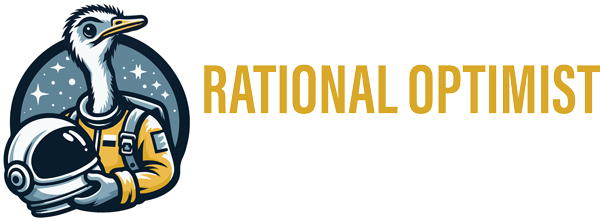Grandpa, what was cancer?
- Stephen McBride
- Jun 27, 2024
- 4 min read
Updated: Mar 21
Can you imagine how difficult it is to be deaf? Put yourself in the shoes of a mom or dad with a deaf child. They might struggle to make friends, to learn. You’d be crying with happiness the day they were cured and heard you call their name for the first time.
Well, new breakthroughs have us on the cusp of curing many kinds of deafness—in kids!
Biotech giant Regeneron recently trialed its experimental drug on two kids born deaf. A single shot in their inner ear is all it took to restore their hearing.
One girl was treated at 11 months and had normal hearing 24 weeks later. Another was treated at four years and showed hearing improvements within a few weeks.
These are early-stage trials, so I don’t want to get ahead of myself. But 30 million kids were born deaf. This could transform their lives. And it’s only the start of the golden age of biotech.
Gene editing, also called CRISPR, was invented about a decade ago. But like most medical breakthroughs, there’s a long journey from “invention” to “actually helping people.”
Scientists have been working in labs for 10 years, tinkering with how to turn this invention into real cures. We’re finally seeing the fruits of their work.
Think of DNA like a book. One page has a typo. This typo can make you deaf, or make you susceptible to Alzheimer’s, breast cancer, or dozens of other maladies.
Gene editing finds and corrects the typo.
Gene editing could help us cure thousands of deadly diseases by “editing” them out of our bodies.
The first-ever gene-editing therapy was approved in America and the UK late last year. This is the real starting gun for the CRISPR era.
Regeneron’s CRISPR shot targeted the gene which carries sound from the ear to the brain. It went in, cut out the broken gene, and replaced it with a working copy.
And this isn’t a one-off. Just a few weeks ago, a little boy in Florida who was born blind had his sight restored by gene-editing eyedrops!
CRISPR will help us tackle thousands of diseases, which today are “incurable.” There’s real hope that the word “incurable” could be obsolete in 50 years.
Medical technology is going to transform rapidly, just like transportation did a century ago. My great-grandparents were born when people rode horses… and lived to see men ride in rockets.
With any luck, as long we keep our priorities straight and foster innovation, growth, and science, my grandson could say: “Grandpa, what was cancer?”
My wife is pregnant with our third child…
In the past, testing for Down’s Syndrome and other conditions involved a doctor jabbing a six-inch needle into the womb.
This wasn’t just uncomfortable. There was a small chance of hurting the baby.
Thanks to gene therapy, we didn’t have to worry. My wife got some blood taken and then run through a gene therapy machine which tells you if anything is amiss. Amazing. (Our baby boy is healthy).
As Rational Optimists, we don’t believe the world just automatically gets better. That’s naivete, or what Peter Thiel criticizes as “indefinite optimism.”
We’re optimistic because we humans are an innovative bunch. We solve problems. As Marc Andreessen wrote in “The Techno Optimist Manifesto”…
“We had a problem of darkness, so we invented electric lighting. We had a problem of cold, so we invented indoor heating. We had a problem of heat, so we invented air conditioning.”
Although the world has gotten a lot better, we still have plenty of problems. Let’s solve them and celebrate those who do.
Only in America: From toilet-cleaning immigrant to billionaire
Jensen Huang used to clean toilets at Denny’s. He founded AI chip pioneer Nvidia with two buddies at a booth in that same Denny’s 30 years ago.
It’s now the most valuable publicly traded company ever. Huang is worth $100 billion. Only in America!
America’s top 10 “rich list” is always in flux. Entrepreneurs like Elon Musk (Tesla, Space X) and Jeff Bezos (Amazon) top the US charts today.
In Europe, it’s mostly old money and inherited wealth: the CEO of 170-year-old fashion house Louis Vuitton; the heir of L’Oréal, the son of a shipping tycoon.
Growing up in Ireland, it felt like your “lot in life” was predetermined. Starting a business was discouraged.
But in America, millions of people go from poor to rich by starting their own businesses. Jensen Huang sums up everything that’s great about America. The American dream is alive and well.
My awestruck daughter
I showed my five-year-old daughter a video of Space X’s skyscraper-sized rocket launching into space. She stood there with her mouth wide open and said, “That’s so cool.”
That video will inspire some kid to become an astronaut.
Compare this to a teen who grew up watching the news every day, seeing nothing but an endless stream of death and despair. Who do you think will be happier and accomplish more?
Hope, ambition, and grit vs. apathy and helplessness.
Your choice!
See you next week.
Stephen McBride
